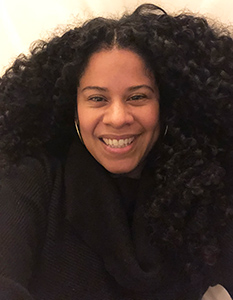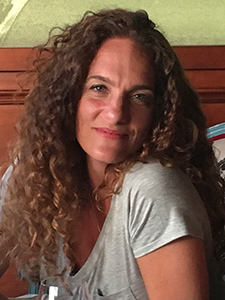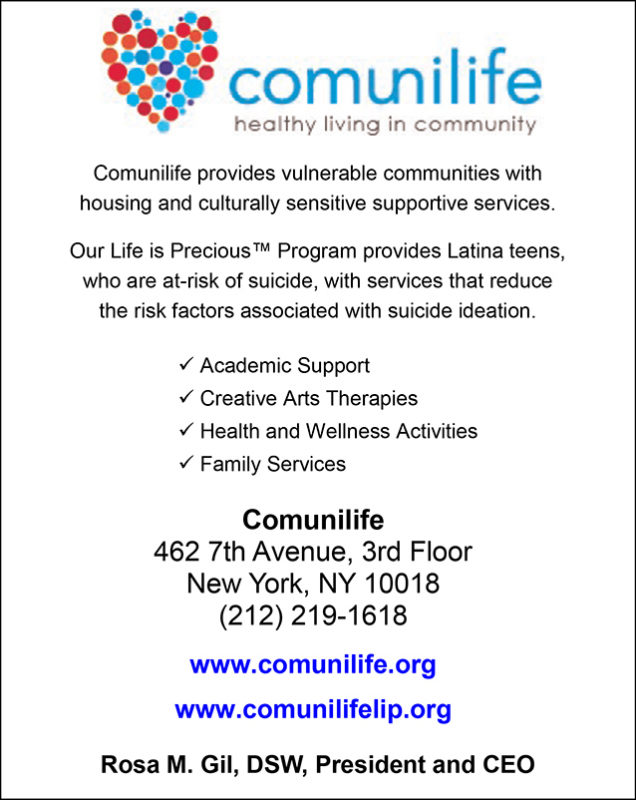Comunilife believes that health disparities affecting the Latinx and other communities of color can be mitigated through an increase of community defined services. Comunilife’s Life is Precious™ (LIP) program is the only program specifically designed to serve Latinx adolescents who have experienced thoughts and/or attempts of suicide and suffer from depression. LIP was started in 2008, by Dr. Rosa Gil, Comunilife’s Founder, President and CEO, in response to the alarming statistics released by the CDC about the high rates of suicide ideation and attempts among Latina adolescents. According to the CDC’s 2020 Youth Risk Behavior Survey (2019 data), more than 18% of Latina teens in NYC seriously considered and almost 10% attempted suicide. New York State statistics show that suicide is the second leading cause of death for Latino teens. LIP was created, with community input, to address this crisis. What began as one LIP center in the Bronx has expanded to four program sites across New York City. In addition to the Bronx, centers are now located in Brooklyn, Queens and Manhattan. LIP has reached hundreds of girls and families since its inception.

Beatriz Coronel, MA

Julie Laurence, LMSW
We know that there are multiple contributing factors that result in young Latinx teens at risk of suicide behaviors. Research findings show that family conflict, poverty, acculturation, stress, trauma, domestic violence, sexual abuse, academic failure, bullying and anti-immigrant sentiment; coupled with the stigma of mental illness and the lack of culturally competent mental health providers are the major contributing factors (Zayas, Gulbas, Fedoravicius, Cabassa, 2010). LIP’s cultural and gender responsive programming addresses these factors with positive youth development activities, trauma-informed case management services, and family engagement.
LIP Approach
LIP is committed to serving Latinx teens and their families by providing robust programming that reduces risk factors, increases protective factors, and builds a supportive community. The program is equally as committed to reducing the stigma of mental health in Latinx communities by raising awareness through culturally and linguistically relevant workshops, outreach, training, public service announcements, and social media. And by developing strong partnerships with stakeholders at schools, mental health clinics, hospitals, youth serving agencies and grassroots community organizations. Direct support services not only normalize mental health needs but build understanding and healing in safe and creative spaces.
Who We Serve
Life is Precious™ serves Latina teens, ages 11 to 17, who are immigrants or first generation Latinx. Nearly all live in some of NYC’s lowest-income neighborhoods and are living with depression or other diagnosed mental illness. We work with a diverse Latinx population including families from the Dominican Republic, Puerto Rico, Mexico, Ecuador, Columbia, Honduras. The criteria for participation in the LIP program is that youth must have a psychiatric diagnosis, is receiving psychiatric and/or mental health services, attending school and have parental consent.
LIP fills a gap in the delivery of mental health services for the Latinx population. Incorporated into LIP intake is our Multicultural Relational Approach for Diverse Populations™, which integrates awareness of – and sensitivity to – clients’ cultural beliefs and preferences into all aspects of service delivery; it promotes youth choice, youth strengths, family participation and resources. This approach successfully moves our participants emotional and behavioral challenges towards greater resiliency, personal stability, independence, health and wellbeing.
As the Latinx population in New York City (29%) and throughout the United States continues to grow, it will become even more vital for there to be programs specifically designed for this often-marginalized population of immigrant communities. In the wake of the Covid-19 pandemic, this need increased even more.
Program Model
Comunilife embraces a culturally competent and gender responsive approach to the work. Our approach includes comprehensive, holistic case management services, youth development groups, academic support, creative arts therapies, music, civic engagement, health/wellness activities and supportive family services.
Each of these components, promotes emotional growth, development of coping mechanisms, healing and a strong sense of community. In essence, these trauma-informed activities create a language used to communicate thoughts, feelings, experiences and states of being. Through this process, the participant with the guidance of LIP staff, develops a personal vocabulary and uses this learned language to communicate those states of being that can defy verbalization and containment in order to gain insight and coping skills.
The programming Comunilife implemented is integral to achieving LIP’s program philosophy of “Survive, Strive and Thrive”. This means that LIP must be a safe place in which to receive support (survive), offer activities that allow the teens to develop their unique voice (strive), and provide tools that help the teens envision and achieve goals (thrive).
For our Spring and Summer 2020 Program, which was conducted remotely due to the COVID-19 Pandemic, we created “Unity” groups, where participants from all four program sites (Bronx, Brooklyn, Queens and Manhattan) were invited to participate together in the groups facilitated by LIP case managers and the music and art therapists. The goal was to enhance and build upon our LIP community and connectedness among peers.
Family Engagement continues to be a cornerstone of our work at LIP. Our more than 12 years of experience has taught us that working with the whole family is essential to a young person’shealing and development.
At the beginning of the Covid-19 Pandemic, which disproportionately impacted the families we serve and the communities in which they live, we developed a new weekly (Spanish language) parent support group to help families navigate the crisis. Each week, we developed interactive and supportive conference calls to provide extra support and aimed to help Caregivers identify and implement coping mechanisms for themselves and for their family members.
The weekly groups have given the parents an opportunity to build a supportive community where they can speak with one another about their experiences and struggles and get holistic support and strategies to manage and navigate stress, anxiety, depression and suicidal ideation for themselves, their daughters, and their family members. Through this collective experience, we are building a strong sense of togetherness and solidarity and have provided our families with an opportunity to process and heal from this and past trauma as individuals, as a family and as a community.
During these family support groups, many of the caregivers expressed a desire to learn English. LIP then implemented twice weekly ESL classes for parents with the aim of decreasing their stressors and making them stronger candidates for job opportunities as well as enhancing their communication with school administrators, teachers, therapists and psychiatrists.
In the last five months, since the onset of the Pandemic we have found that:
- Over 90% of the parents have either lost their jobs or have had their hours reduced.
- 100% have expressed concerns over food insecurity. LIP received a grant from the Hispanic Federation to provide $300 gift cards for the families to be used for food and household items.
- Many families are dealing with loss and grief and fear of the unknown
As a result of our enhanced parent involvement, caregivers reported that they felt better equipped to manage their daughters’ symptoms during this time and implemented the psychoeducational and practical tools and techniques they have learned.
Program Outcomes
In 12 years of programming, not one Latina teen who has participated in LIP has completed suicide. LIP’s accomplishments are measured by the positive results achieved by the girls. This is validated by an evaluation which has been conducted, since 2013, by the New York State Psychiatric Institute/Columbia University – New York State Center of Excellence for Cultural Competence. The research has shown that for every month a Latina teen participates in Life is Precious™ her level of suicide ideation and depression decreases. For Latina teens with a history of sexual abuse and/or drug and alcohol use, the decrease in suicide ideation and depression were more profound. Comunilife’s goal is to have Life is Precious™ designated as a community informed, evidenced based practice model of care by SAMHSA. The researchers have completed phase one of the evaluation where fidelity testing took place and a manual of operations was developed. Phase Two, which is working with control groups, is currently in process.
We know that LIP is achieving these successful results for the following reasons:
1) LIP is a community informed program which directly addresses the risk factors associated with Latina adolescent suicide
2) LIP provides culturally competent services that integrate cultural norms into all program development
3) LIP incorporates the entire family to reduce the risk of suicide among Latina teens.
Conclusion
While we know that the pandemic will have long lasting effects on the lives of our teens and their families and know that they will continue to face this crisis for some time, we have learned new ways in providing support and staying connected to create a sense of community, hope and stability in which our families can thrive.
Comunilife’s mission is to provide vulnerable communities with housing and culturally sensitive supportive services. Our vision is that no one should be without the housing and support they need to lead a healthy, meaningful life.
Julie Laurence, LMSW, is Senior Assistant Vice President and Beatriz Coronel, MA, is Senior Program Director for Life is Precious at Comunilife, Inc. Rosa M. Gil, DSW is President and CEO at Comunilife.
For more information, visit www.comunilife.org and www.comunilifelip.org or call (917) 304-3645.







